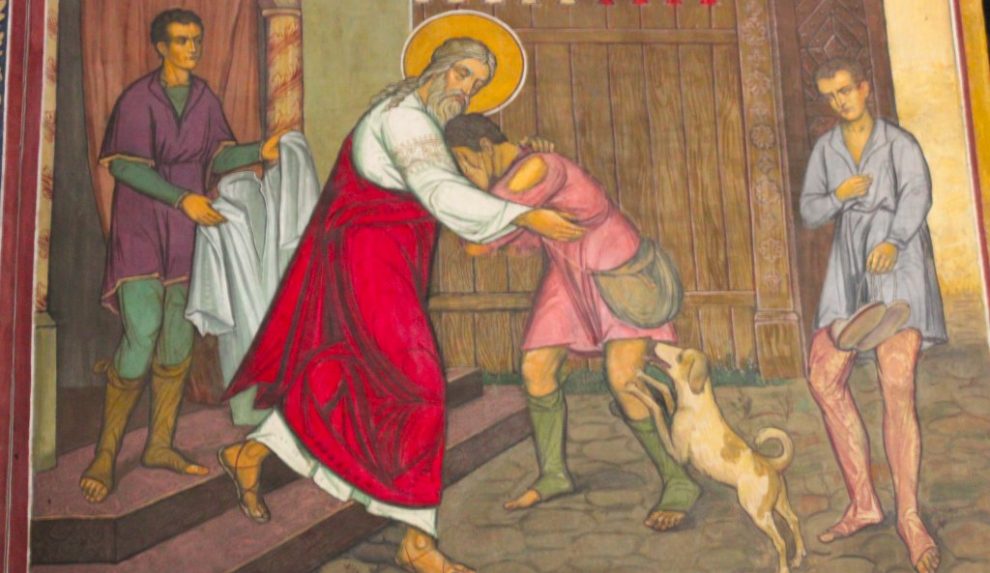When St. Paul arrives in the Roman Empire, teaching the gospel of God’s love for humanity through the self-gift of Christ on the cross, he meets an empire structured around class, status, ethnicity, and gender. Within this culture, his message resonates among those disenfranchised by the Roman social order and the legal system that keeps some out while turning them into property and human capital.
Paul’s new converts welcome the gospel teaching that all God’s children are siblings, but still allow the social order that characterizes their lives in the Roman empire to play out in their new identities in the household of God.
Ethnic tension between Jewish and Gentile Christians almost derails the unity of God’s children in Antioch (Gal. 2:12–13). Convinced of the siblinghood of God’s children on the basis of their one baptism in Christ (Gal. 3:26–28), Paul confronts those who support the toxic attitude of racial or ethnic superiority that causes people to internalize an inferior racial image of themselves (Gal. 2:14–15).
When they gather for the Eucharist, class and status threaten the unity of the church as God’s household in Corinth (1 Cor. 11:20–22). In Colossae, Paul confronts the Roman legal system that dehumanizes and enslaves non-Romans, turning them into human capital and indentured people. Paul inveighs against the Corinthian Christians’ so-called liturgical ritual as self-condemnatory. He declares their liturgy an affront to the household of God (1 Cor. 11:22).
Paul challenges Philemon’s socially defined relationship with Onesimus, especially as it concerns the draconian Roman law regarding the treatment of a slave returning to their master’s home (Phil. 8–16). He is persuasively emphatic that Philemon should welcome back Onesimus as a beloved brother in Christ and that and they have become siblings in God’s household (Phil. 16).
Throughout his epistles, Paul proclaims, defends, and lives out his gospel message of the siblinghood of God’s children. Although he enjoys status as an educated Roman citizen, he crosses the dehumanizing lines of class, status, ethnicity, race, and gender division and becomes thereby “all things to all people” (1 Cor. 9:19–23).
Paul does not just write inspiring words about belonging to God’s household; he practices what he preaches and establishes communities within the Roman Empire based on this theology. On one of his several visits to Corinth, he promotes unity in diversity as congruent with the values of the kingdom of God. In his letter to Philemon, he informs Philemon that he is coming to his home right after his release from jail. For what purpose? To confirm Philemon’s compliancy to the demands of the gospel to treat Onesimus as no less than a beloved brother in Christ.
Today, Paul’s teachings on inclusion and siblinghood through Christ have important lessons for Catholics seeking to address racism in the United States.
The U.S. Conference of Catholic Bishops (USCCB) has authored several pastoral letters on race relations. They state that Catholics must not allow the “destructive and persistent” evil of racism to damage our identity as God’s children. The bishops’ most recent letter, “Open Wide our Hearts: The Enduring Call to Love,” insists that racism “has no place in the Christian heart.”
Sadly, the scourge of racial tension persists in our church and, to a wider extent, in our nation. As God’s children, we are implicated in the divisive social order of race relations in our nation. Our examination of conscience, reproach, and penitence must answer the bishops’ call that “action is still needed” to end racism in our nation.
The bishops have pledged resources in their respective dioceses for “struggling parishes, schools and organizations.” They direct Catholic schools to develop curricula on race relations and the strength of American racial diversity. In addition, they have demanded that seminaries and houses of formation must do more in training seminarians to lead our diverse church into the future.
The bishops insist that storytelling and listening sessions on race relations must begin in parishes. “Open Wide Our Hearts” calls on those who take the pulpit at our liturgies to deliver homilies intentionally denouncing the toxicity of racism.
The USCCB has also formed an ad hoc Committee on Racism “to implement the vision of this pastoral letter.” In the wake of the tension surrounding the death of George Floyd, the chairman of the ad hoc committee released a hopeful and prayerful video calling the church to action.
And yet, despite these actions, the deaths of George Floyd, Breonna Taylor, and Ahmaud Arbery are a rude awakening that the malaise of racism still entangles the heart of our nation. These weeks of racial tension mean that more needs to be done to address equitable race relations in our society and in our church. The bishops’ commitment to the message of “Open Wide Our Hearts” must match their disposition to implement it.
It is here that St. Paul can be a model. His pastoral leadership goes far beyond merely writing letters; he promotes and defends his belief about the gospel of the siblinghood of God’s children. He visits communities and gently but firmly and courageously nudges them into a genuine life of unity in diversity as members of God’s household.
The bishops must do the same: visit parishes, seminaries, and Catholic institutions and engage both laypeople and clergy on what diversity in the household of God means.
This springtime of racial tension in our nation is a season of accountability. It is an opportunity for church leaders to promote the message of “Open Wide Our Hearts” before the evil that is splitting apart the soul of our nation also destroys the church.
The poisoned relationship between men and women of different skin colors needs the elixir that is the gospel of the siblinghood of God’s children. The church must preach it to be truly a household of God.
Image: Philemon receiving Onesimus via Wikimedia Commons















Add comment